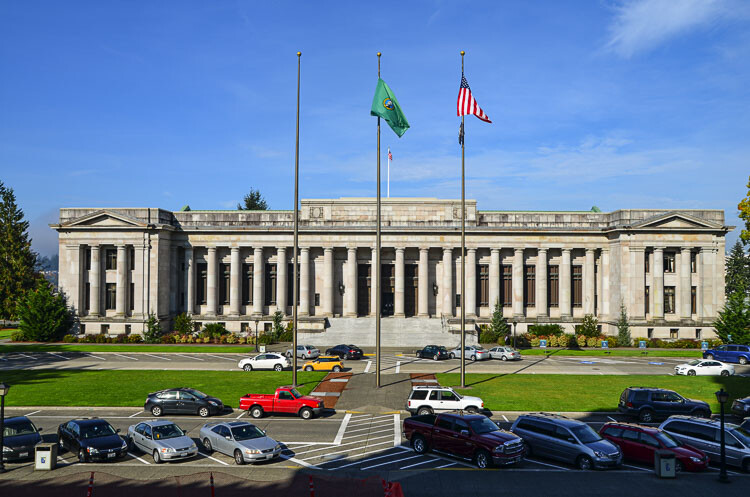
Jason Mercier of the Washington Policy Center shares the latest on the lawsuit challenging the legality of the tax
Jason Mercier
Washington Policy Center
The next steps on whether Washington will remain income tax free will be in the courts, as the I-1929 ballot campaign to repeal the capital gains income tax has suspended its activities. Earlier this year an Inslee-appointed judge ruled that the capital gains income tax is unconstitutional. The Attorney General is asking the state Supreme Court to take the case on direct review.

The Everett Herald reported on Friday that the I-1929 ballot campaign was not moving forward:
“Sponsors of Initiative 1929 said Friday they won’t proceed and will instead await the outcome of a lawsuit challenging the legality of the tax.
‘While our polling shows that voters overwhelmingly support repealing the capital gains income tax, our coalition has confidence in the strength of the court case and we believe that the lower court decision will be upheld on appeal,’ said Mark Funk, a spokesman for the political committee behind the measure. ‘Therefore we believe the best coalition strategy in 2022 is to place our confidence in the courts to overturn this illegal tax.’”
Although I-1929 will not be moving forward, the successful ballot title challenge should prevent the Attorney General from playing additional games on any future voter efforts to repeal the capital gains income tax if the courts somehow decide to rule we don’t own our income (as requested by the Washington Education Association in a legal brief).
The threat by income tax supporters to create a “hotline” to make any efforts to gather ballot signatures “as expensive and uncomfortable for them [I-1929 campaign] as possible,” remains troubling. RCW 29A.84.250(4) says:
“Every person is guilty of a gross misdemeanor who . . . Interferes with or attempts to interfere with the right of any voter to sign or not to sign an initiative or referendum petition or with the right to vote for or against an initiative or referendum measure by threats, intimidation, or any other corrupt means or practice…”
I asked the Secretary of State’s Office about the plans by opponents of I-1929 to set up a surveillance system on signature gatherers considering RCW 29A.84.250(4) and received this non-answer:
“This office has no role in the signature gathering process. We certainly encourage voters to fully read any documents before applying their signature.”
Although the I-1929 campaign has stopped its efforts, it is important to remember the shady anti-voter legislative history that it was responding to. I-1929 was filed after lawmakers prevented a public vote on the new capital gains income tax (SB 5096) by attaching a fake emergency clause to stop a referendum on the new tax. In a floor speech, Democratic Sen. Mark Mullet called out his party for the back-door emergency clause used to deny Washingtonians their right of referendum on the capital gains income tax. Sen. Mullet said:
“I find it extremely disappointing that we’ve now moved heaven and earth to make sure the residents of Washington state are not able to challenge this bill thru the referendum process.” (Comments at 52:47 min mark of floor debate)
With lawmakers preventing a referendum on SB 5096 and the I-1929 campaign suspending its activities, the only vote to date by the public on the new capital gains income tax was the non-binding advisory vote in 2021. At the time, 61% of voters recommended the capital gains income tax be repealed.
With the I-1929 campaign suspending its activities, we now wait to see if the state Supreme Court decides to take direct review or allows the Appeals Court to act first on the capital gains income tax lawsuit.
As a reminder, here is what the Inslee-appointed judge ruled back in March concerning the capital gains income tax:
“ESSB 5096 is properly characterized as an income tax pursuant to Culliton, Jensen, Power and other applicable Washington caselaw, rather than as an excise tax as argued by the State . . . ESSB 5096 is declared unconstitutional and invalid and, therefore, is void and inoperable as a matter of law.”
Based on the current briefing schedule in the case, a decision from the state Supreme Court on whether to accept direct review is expected sometime this fall.
Jason Mercier is the director of the Center for Government Reform at the Washington Policy Center.




